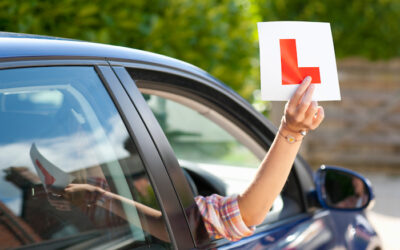 No good instructor will put forward a pupil to take their test unless they are 100% confident that the pupil is ready. However, having the driving skills and using them to the best of your ability on examination day are two very different things. Nerves can play a huge part, as can your perception of your own abilities, which is often why mistakes are made on the day which are avoidable. The majority of people fail their driving test due to a lack of planning and/or judgement. Having the skills to reverse around a corner, or turn out of a junction is all very well, but you must also be able to react safely and correctly to the conditions around you at the time.
No good instructor will put forward a pupil to take their test unless they are 100% confident that the pupil is ready. However, having the driving skills and using them to the best of your ability on examination day are two very different things. Nerves can play a huge part, as can your perception of your own abilities, which is often why mistakes are made on the day which are avoidable. The majority of people fail their driving test due to a lack of planning and/or judgement. Having the skills to reverse around a corner, or turn out of a junction is all very well, but you must also be able to react safely and correctly to the conditions around you at the time.
The top 10 reasons for failing a driving test:
- Observation at junctions. You must be able to demonstrate your ability to turn or emerge safely into a new road.
- Reverse parking. Your observation and judgement is key here.
- Use of mirrors. You must take care to use them well before any manoeuvre is necessary.
- Moving away. You must ensure that it is safe to do so before you move the car.
- Use of signals. You must signal within the correct time so that other road users are aware of your intentions.
- Incorrect positioning. Your car must be safely and appropriately placed on the road at all times.
- Reversing around a corner. Continuous observation and judgement are absolutely necessary.
- Lack of steering control. You must have the correct control for the speed that you are driving at.
- Turn in the road. Again, excellent control and observation are necessary.
- Inappropriate or excessive speed. Travelling too slowly for the road or conditions that you are driving in. Your speed must be appropriate for the road and not hold people up unnecessarily.
The majority of those reasons for failing a driving test are directly linked to ineffective observation or accuracy in manoeuvres. You should already have practiced the manoeuvres many, many times before your actual test, so the best way to complete them to the required standard during the test is to take your time whilst carrying them out and have confidence in your abilities.
Having confidence in yourself, reducing your nerves and mentally preparing yourself for your test will all increase your chances of passing. If the time has come for you to take your test, then you should already have the necessary skills and have practiced them. Your success or failure will largely depend upon your ability to use your skills effectively. Put your nerves to one side and simply concentrate on doing what you’ve learned.
According to the Driving Standards Agency, every single one of the requisite manoeuvres features on the top ten list of reasons to fail. Most of them are related to planning and decision making. As long as you are comfortable and confident in your knowledge and skills, then you stand a good chance of passing your driving test.
Don’t forget, you’ll have some time between your last test and your next to drive with your instructor, or have some time in the car with a friend or relative. Just make sure you have provisional insurance and that they meet the requirements to supervise a learner.



